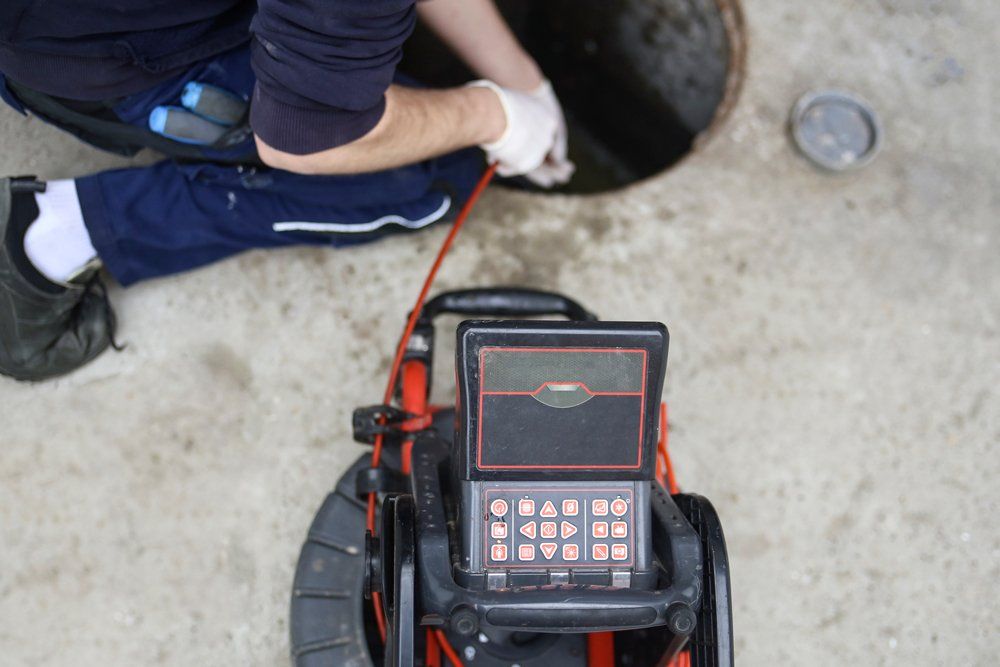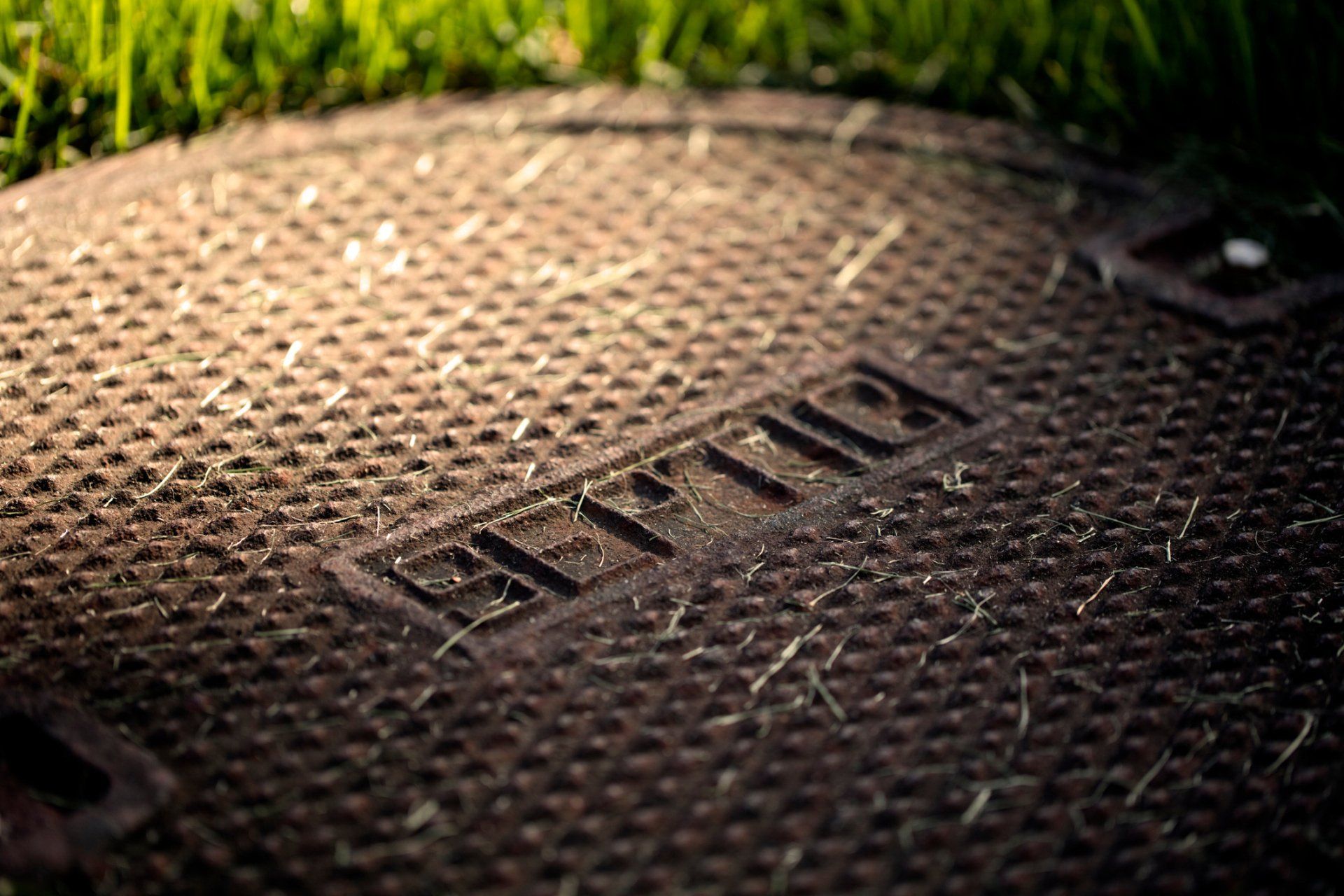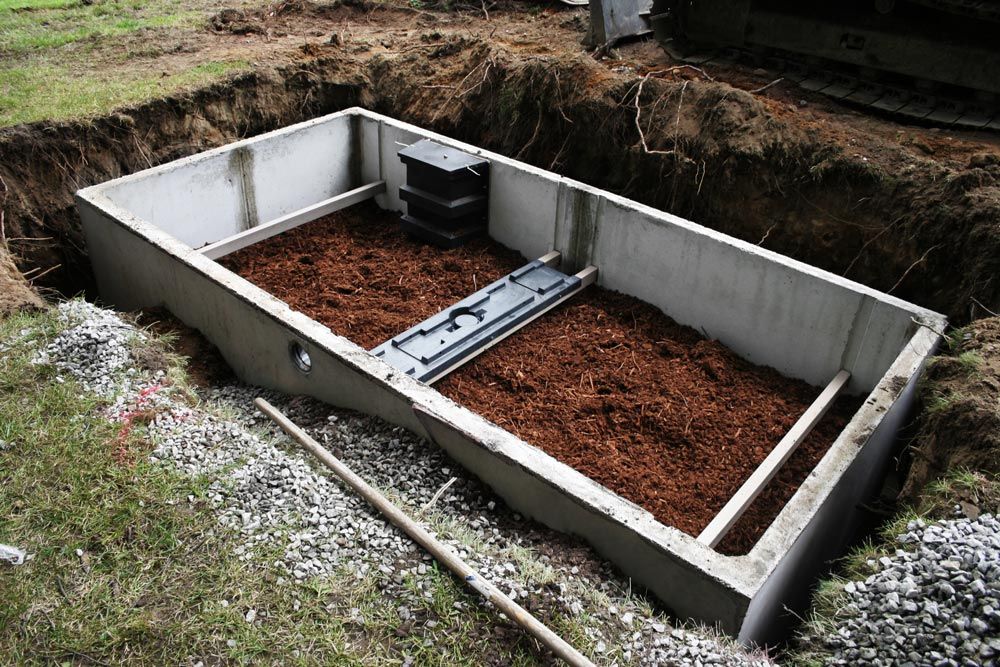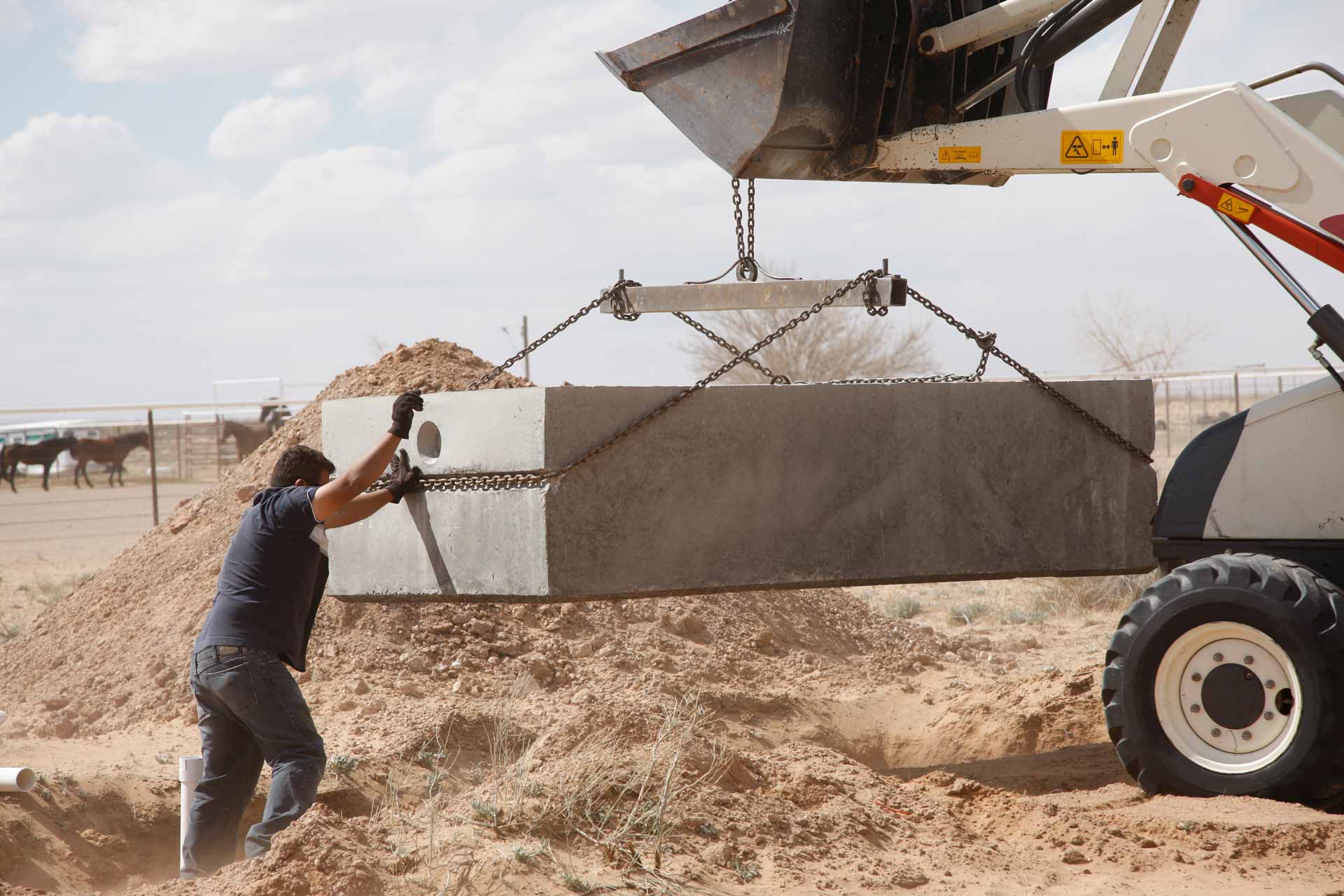HOW EXCESSIVE WATER AFFECTS YOUR SEPTIC TANK AND WHAT TO DO
Admin • August 10, 2018
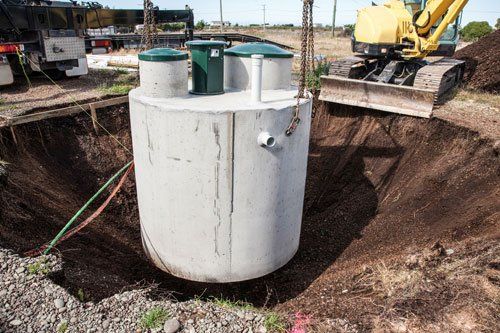
Septic systems are designed with a specific capacity based on the amount of water usage in a household. Exceeding this capacity can drastically diminish the system's ability to treat wastewater, which can result in contamination of water sources. Regulating indoor and outdoor water usage can prevent overloading and will extend the life of your septic tank.
Read on to learn more about septic tank overload and simple ideas to conserve water while protecting your septic system.
SEPTIC TANK OVERLOAD
Septic tanks come in different sizes based on user needs. When working properly, a septic tank should enable solid waste to settle at the bottom of the tank and bacteria to break down organic waste to generate nutrients.
Overloading occurs when wastewater flows into the septic tank faster than the tank's holding capacity.
An overloaded septic system does not allow solids to adequately settle and limits necessary bacterial activity. This increases the risk of solids moving into and clogging the drain field, which can reduce the septic tank's efficiency or lead to a complete breakdown of the system.
A high flow rate of wastewater can also minimize the bacterial quantity in the tank, resulting in inadequate wastewater treatment.
INDOOR WATER CONSERVATION
To prevent septic tank overload and the consequences that come with it, homeowners should adopt good practices for minimizing water wastage. Here are a few ideas you can start with.
Adjust Your Laundry Routine
Washers consume a lot of water, so you should make a few changes to how you clean your clothes to avoid excessive water wastage. If you are in the market for a new washer, opt for a front-loading machine, which is more energy and water efficient than the top-loading type.
Also, load the washer to full capacity to maximize water usage. But try to clean clothes more regularly, preferably throughout the week. Accumulating clothes to clean all at once, with multiple loads in one day, can push too much wastewater into the septic tank and cause an overload.
Minimize Shower Water Waste
The average person spends about 8 minutes in the shower, which uses over 16 gallons of water. To conserve more water, consider taking fewer and shorter showers and turning off the water while you are lathering.
If yours is an older home, look into replacing the showerheads with water-efficient ones with a flow rate of no more than 2.0 gallons per minute (gpm).
Flush Down Less Water
Toilets are among the biggest water guzzlers in the home. To minimize waste, try using the toilet several times before flushing. Dispose of tissue and other items in a bin to reduce the need for constant flushing.
If you have older toilets that tend to consume a lot of water, invest in new, water-efficient ones to realize a significant reduction in water use. You should also fix leaking toilets immediately. Toilet leaks are a major source of water wastage in the household.
OUTDOOR WATER CONSERVATION
In addition to adjusting your indoor activities, you can take several steps to minimize water wastage outdoors.
Practice Smart Lawn Care
Consider using drip irrigation for your landscaping needs. Drip irrigation systems deliver water slowly to the roots, thereby minimizing the amount of water use.
Be sure to inspect your irrigation system for wasteful leaks and develop a watering schedule that aligns with your irrigation needs.
Adjust Garden Hose Flow Rate
Install a micro-spray or shut-off piston at the end of your garden hose to reduce the gallon per minute flow rate.
Water When Necessary
Reduce the frequency with which you water your lawn and garden and consider watering early in the morning or later in the evening when the rate of evaporation is lower.
Periodic maintenance and inspection can help detect hydraulic overload in a septic tank. Once you have your septic tank repaired or pumped, be sure to conserve water to extend the tank's lifespan.
At Pete's Outflow Technicians
, we can help you keep your septic system in good shape all year long. Get in touch with us today to find out more about our services.
If the septic system doesn't function properly, it could start to generate bad smells. Learn about common reasons why septic systems produce bad smells.
The roots of trees can penetrate your septic system and impede system performance. Learn a few steps to prevent tree and shrub roots from invading your tank.
Whether constructing a new home or replacing an old septic system, homeowners must decide on the type to install. See a few types of septic tanks.
Pumping your septic tank should be part of your home maintenance routine. How often you should pump your tank? Discover a few factors that determine that.
All septic system parts eventually fail. Read on to learn about some factors that determine how long your septic drain field will last.
Landlords should proactively maintain their septic tanks for health, safety, and compliance reasons. Discover essential maintenance tips.

